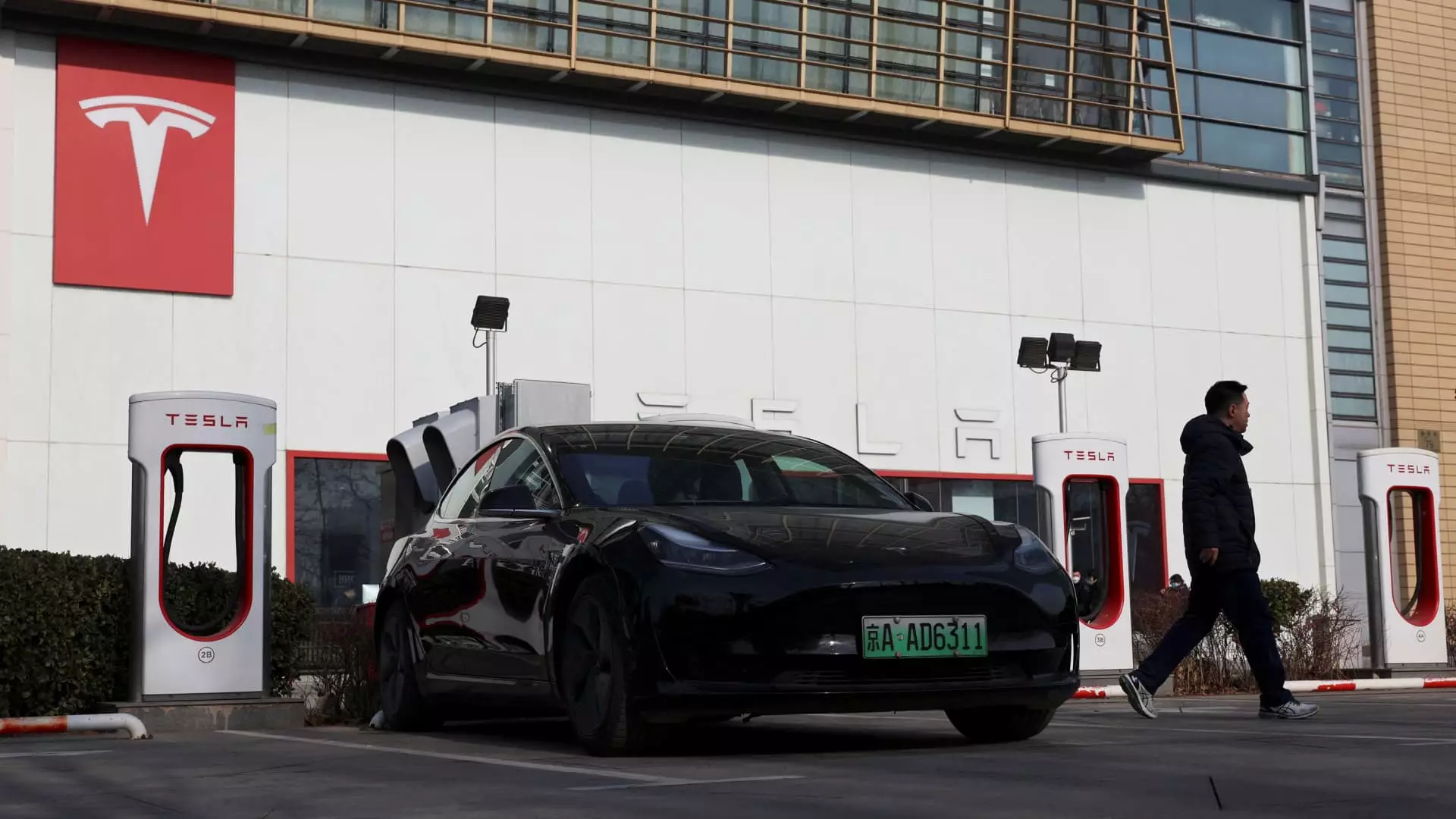The Chinese automotive market is experiencing a seismic shift as we transition from 2024 to 2025. Traditional foreign automakers, which once dominated this vast market, are gradually being sidelined as local electric vehicle (EV) manufacturers rise to prominence. Companies like BYD and Geely are not only capturing significant market shares but are also redefining the landscape of electric mobility, indicating a trend that is likely to accelerate in the coming years. Nomura’s analysis suggests that the next year will provide opportunities for these local players to strengthen their foothold, while the international giants may find it increasingly difficult to compete.
BYD, a Chinese automaker that has rapidly gained traction in the EV sector, stands out as a beacon of success. As of October 2024, it commanded a remarkable 16% of the entire Chinese automotive market—up from 12% just the year before. This growth trajectory has caught the attention of investors and analysts alike, as Nomura has identified BYD as their prime investment choice in the Chinese automotive sphere. With a price target of 375 Hong Kong dollars ($48.20), analysts project a modest yet promising upside. What’s striking is BYD’s achievement in surpassing Tesla’s quarterly revenue for the first time, further reinforcing its status as a leader in the domestic market.
Despite BYD producing more vehicles than Tesla for the second consecutive year, it’s essential to note the difference in product strategy. Tesla is primarily focused on battery-operated cars, appealing to a higher-end market, while BYD maintains a diverse portfolio that includes hybrid models. The latter’s sales surged an impressive 67% year-on-year, despite Tesla experiencing a downturn in China with a 4.3% decrease in sales. This disparity illustrates how BYD’s versatility and understanding of local consumer preferences have positioned it ahead of competitors.
Geely, another noteworthy player, has positioned itself strategically within this transformative environment. As the second-largest automaker in China, holding an 8% market share, Geely is on track to capitalize on its growing reputation and newly launched models. Analysts at HSBC regard Geely’s trajectory favorably, estimating that the company could produce 2.6 million units in 2025—an ambitious goal supported by an estimated 40% penetration of electric vehicles in its sales mix.
With an ownership stake in electric brands such as Zeekr and traditional luxury brands like Volvo, Geely’s diversified approach allows it to cater to different segments of the market. Their ongoing expansion reflects the adaptability and resilience necessary in the fast-evolving automotive landscape.
The Challenges for Traditional Automakers
As local brands thrive, traditional automakers find themselves grappling with new realities. General Motors, once a dominant player in China, has announced plans that reflect its struggles, citing potential billions in restructuring costs as it grapples with diminishing market shares. With only 3% of the overall Chinese auto market and 6% in the new energy vehicle segment, GM’s future in China is increasingly uncertain. The swift transition to more innovative, greener automotive technologies has left such firms at a disadvantage against nimble local competitors who can adapt more readily to market demands.
The Emergence of Startups and Partnerships
While established players like BYD and Geely lead the charge, a wave of electric vehicle startups is attempting to carve out their own niche. Hong Kong-listed Yongda, for example, is positioned to benefit from partnerships with tech giants like Huawei. Although Huawei does not manufacture vehicles, its contributions to the automotive sector through advanced digital technology are noteworthy. Analysts project Yongda could see sales reaching one million units next year as it scales operations and expands its retail network.
Other startups such as Nio and Leapmotor are also drawing attention. Leapmotor’s efficient spending on research and development has led to a favorable comparison with competitors, potentially indicating a more sustainable path to profitability as they ramp up production.
As we move toward 2025, the landscape of China’s automotive sector lies at a crucial juncture. With traditional manufacturers struggling and homegrown companies like BYD and Geely taking the lead, the upcoming year promises to be pivotal. The emphasis on electric and hybrid vehicles coupled with shifts in consumer preferences will continue to reshape the market.
The potential for innovation and growth within the sector is vast, and it remains to be seen how domestic and international players will respond to this rapidly evolving environment. Investors and industry analysts should keep a close eye on emerging trends, as China’s automotive revolution appears poised for further advancements, driven chiefly by local talent and ingenuity.

